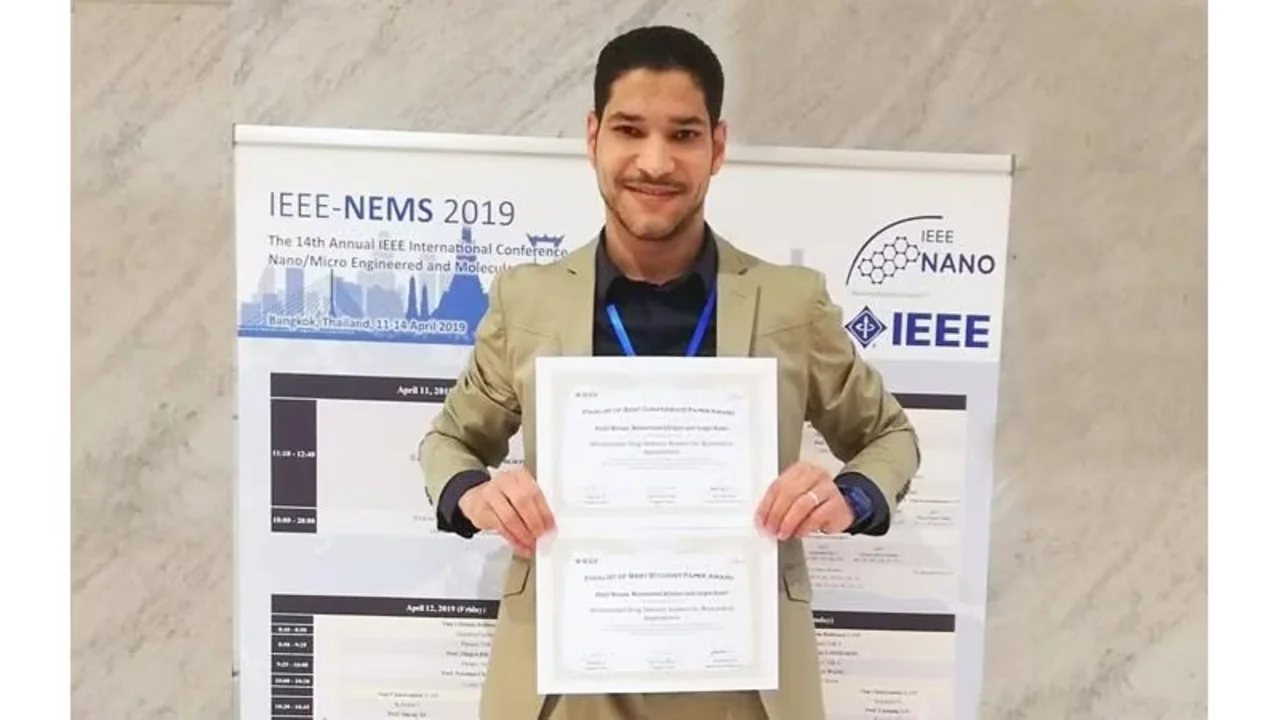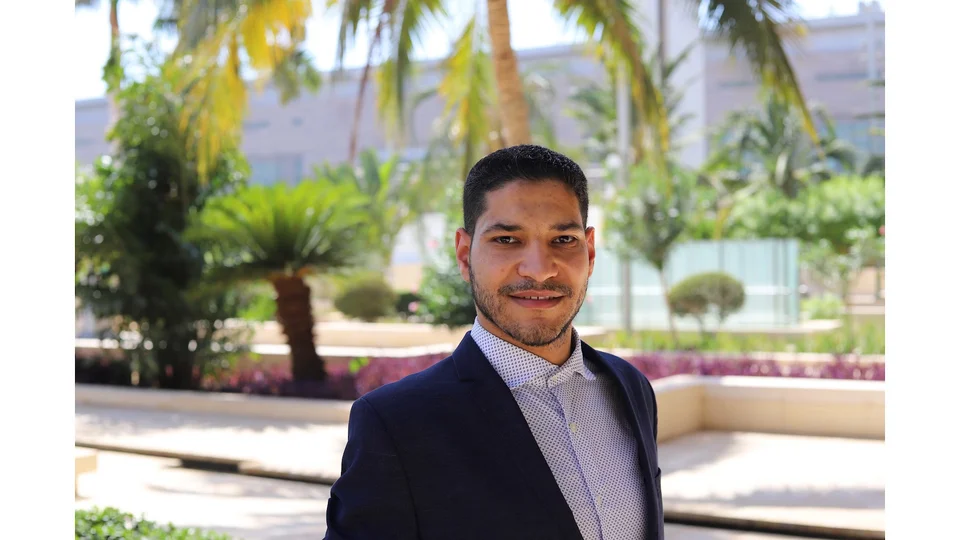
Ph.D. student's innovative research wins awards
KAUST Ph.D. student Khalil Youssef Moussi recently had his innovative research recognized at the 14th Annual IEEE (Institute of Electrical and Electronics Engineers) International Conference on Nano/Micro Engineered and Molecular Systems (NEMS). At the event, which was held in Bangkok, Thailand, from April 11 to 14, the electrical engineering student was a finalist of the Best Student Paper Award and a finalist of the Best Conference Paper Award.
About
KAUST Ph.D. student Khalil Youssef Moussi recently had his innovative research recognized at the 14th Annual IEEE (Institute of Electrical and Electronics Engineers) International Conference on Nano/Micro Engineered and Molecular Systems (NEMS). At the event, which was held in Bangkok, Thailand, from April 11 to 14, the electrical engineering student was a finalist of the Best Student Paper Award and a finalist of the Best Conference Paper Award.
Moussi's presentation at the conference is part of a larger project in KAUST Associate Professor Jürgen Kosel's Sensing, Magnetism and Microsystems (SMM) group. The project has been going on since late 2016, when a collaboration began between a cardiologist from King Abdullah International Medical Research Center (KAIMRC) and Kosel. The collaboration proposed the use of KAUST-developed technology to help tackle one of the leading causes of fatalities worldwide—coronary artery disease.
'Miniaturized Drug Delivery System for Biomedical Applications'
The paper Moussi presented at NEMS, which was titled "Miniaturized Drug Delivery System for Biomedical Applications," showcased the fabrication process behind the development of a wirelessly powered miniaturized drug delivery system that exploits the versatility of 3D printing and the efficiency of molding.
The device, which is composed of an electrochemical micro-pump, a 3D printed reservoir (with microneedles) and a wireless powering unit, offers many customizable properties. The device can be altered to accommodate specific shape, size and performance requirements. It can also be tailored to fit a wide range of in vivo drug delivery applications.
"I am so happy and proud of this achievement. It is the best reward after all the hard work we put into our research, and nominations like these are the best motivation to continue and to do more," Moussi said.
"I was very honored to represent KAUST at such an event," he continued. "It was so special that our work was selected twice. Our high-quality research work and my presentation were highly appreciated and acknowledged by the program committee and attendees. At the event, we received great publicity for our project as well as for KAUST in general."
Read the full article
